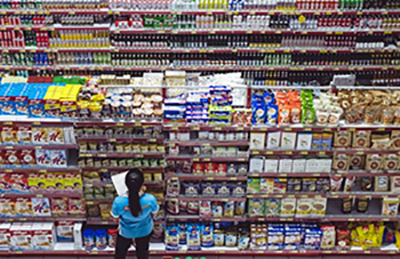
‘Brick & Mortar Here to Stay’

Cushman & Wakefield, New York, said brick and mortar stores will remain a crucial part of the retail sector even if e-commerce grows.
In a report, Making an Impact in Retail: Why Brick and Mortar is Here to Stay, Barrie Scardina, Cushman & Wakefield Head of Retail for the Americas, noted many speculated as the COVID-19 pandemic surged that increased e-commerce would eliminate the need for physical stores. But today, e-commerce sales have leveled off at just over 20 percent of core retail sales, down from nearly 23 percent in 2020. Retailers actually opened more than 4,200 stores in the first five months of 2022, exceeding this year’s store closings by 240 percent.
This puts 2022 on track to be the first year of net-positive store openings since 2016, Scardina said.
“This is all a clear indication that retail stores are here to stay–and that’s because they do much more than just serve as a place to shop,” Scardina said. “As we look to the future of retail, brick-and-mortar is clearly an important part of the landscape,” she said. She noted Cushman research predicts more than 80 percent of all retail sales will be completed in physical locations in the coming years.
“Stores are here to stay because they enable consumers to encounter new brands, engage with ambassadors and product specialists and secure merchandise immediately. [They] support the overall omnichannel shopping experience for a retailer,” Scardina said.
In addition, physical stores entertain and engage shoppers “and are simply part of our social fabric,” Scardina said.
Cushman said brick and mortar stores drive growth for emerging retail brands. “Although we have seen great success with digital-only brands, increasingly more retailers are recognizing that a physical store helps to drive growth and create brand awareness,” the report said. “Physical stores ensure an immersive customer experience, reduce customer acquisition costs and help build a longer-lasting relationship. Brands like Warby Parker, Allbirds, Untuckit and Brilliant Earth are great examples of brands that exponentially grew their business by expanding from online to in-store.”
Stores also “complete the brand experience,” Cushman said. “A meaningful brand experience helps retailers convert consumers and drive sales. To achieve this, consumers need to engage all their senses in the brand–and a physical store location allows them to do just that. New retailers can introduce customers to their products, promotions and ethos, while existing retailers can evolve their brand by testing new merchandise, in-store consumer journeys and marketing materials.”
Finally, physical stores give immediate access to products. “While many retailers are offering convenient services such as free or next-day shipping, shopping in a store provides instant gratification,” Scardina said. “Engaging with store staff, learning about new products and trying on items before you buy are all part of a great brand experience. Additionally, for many, shopping is an essential social activity that brings friends and family together. Who hasn’t dropped by the mall after school with friends or spent a Saturday afternoon running errands and grabbing lunch with family? Stores make this possible.”
